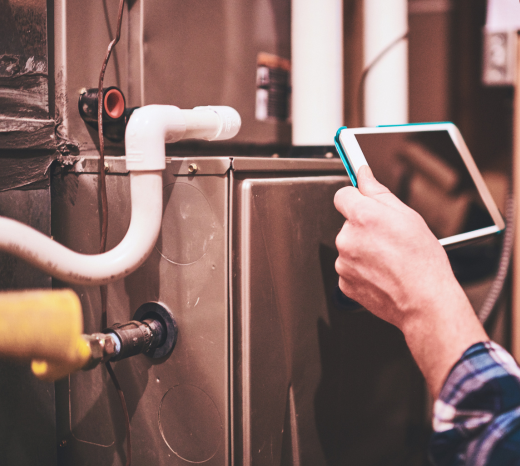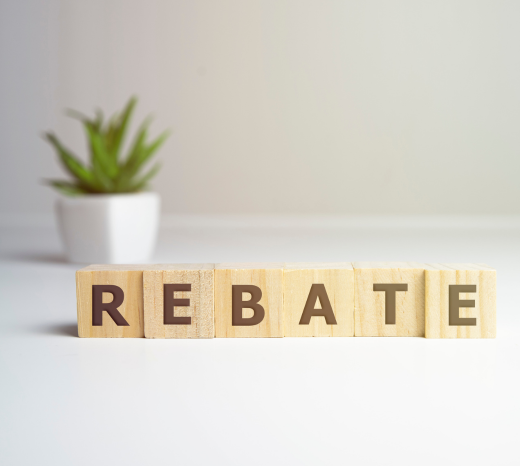Action Furnace has been Alberta’s comfort leader since 1975 with over 30,000 installations and thousands of 5-star reviews. Let our experienced team give you all the knowledge behind why your furnace may be leaking water and what you do about it.
...
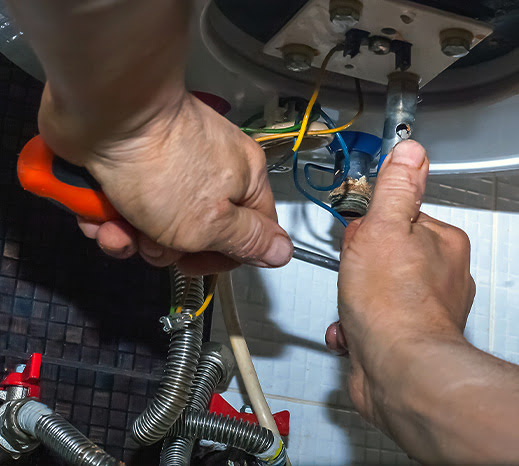
Leaking water is never a welcome sight, but when it’s coming from your furnace, it can be especially perplexing. Still, leaking furnaces are more common than you might think—and if you see your furnace leaking water, you’ll want to fix the problem quickly.
The good news is that the Action Furnace team has dealt with plenty of furnaces leaking water in Calgary, Edmonton, and Red Deer. We’re here to show you why this problem occurs, what consequences it can have for your home and HVAC system, and how you can resolve the problem.
Table of Contents
- What Makes a Furnace Leak Water?
- Blocked or Frozen Condensate Drains
- How to Fix it?
- Flow-Through Humidifier Problems
- How to Fix it?
- Wear & Tear
- How to Fix it?
- Improper Installation
- How to Fix it?
- Blocked or Frozen Condensate Drains
- What Happens if You Don’t Fix the Leak?
- Other Signs Your Furnace May Need Professional Service
- More Improved Indoor Air Quality with Help from Action Furnace
- FAQ
What Makes a Furnace Leak Water?
Several different problems can cause a furnace to leak water. Here are a few of the most common, along with solutions:
Blocked or Frozen Condensate Drains
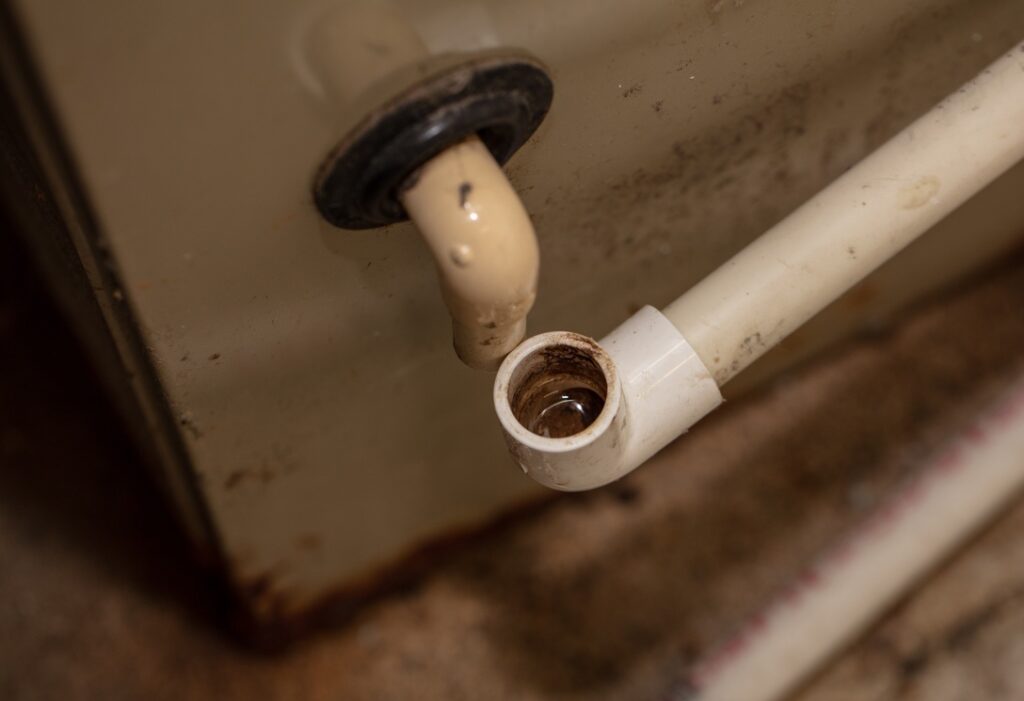
The condensate drain is responsible for carrying away water that condenses inside the unit as your furnace operates. However, cold temperatures can cause chunks of ice to form inside the drain, blocking the flow and leaving the water produced by the furnace with nowhere to go. This can cause the drain to overflow, resulting in pooling water near the unit.
How to Fix It
Power down your HVAC at the breaker, turn your thermostat off, and then find the drain pan (often behind an access panel near the bottom of the unit). Remove any standing water from the pan, then clean it with soap and water.
Next, find the condensate drain outlet (which will likely be outside your home and near the foundation). Use a plumbing snake to remove any clogs. You can flush the drain with white vinegar afterward for about 30 minutes, but don’t use bleach as this can damage the plastic. If the problem persists, call Action Furnace and let us take a closer look.
Flow-Through Humidifier Problems
Many homes in Calgary have flow-through humidifiers connected to them, which position an evaporator pad soaked with water so that warm air from the furnace can pass through it, adding moisture to the atmosphere indoors. However, these humidifiers can leak water if there are problems with the valves used to operate them. Leaks can also occur if the pressure inside the unit is too high, or if minerals build up on the pad.
How to Fix It
We don’t recommend attempting to fix a flow-through humidifier by yourself, since they are connected to your home’s ductwork and any mistakes could severely damage your HVAC system. If you have a flow-through humidifier, getting our team at Action Furnace to inspect it as part of your annual HVAC tune-up is the best way to prevent issues that could lead to leaks—but call us right away if you notice a leak that has already taken place.
Wear & Tear
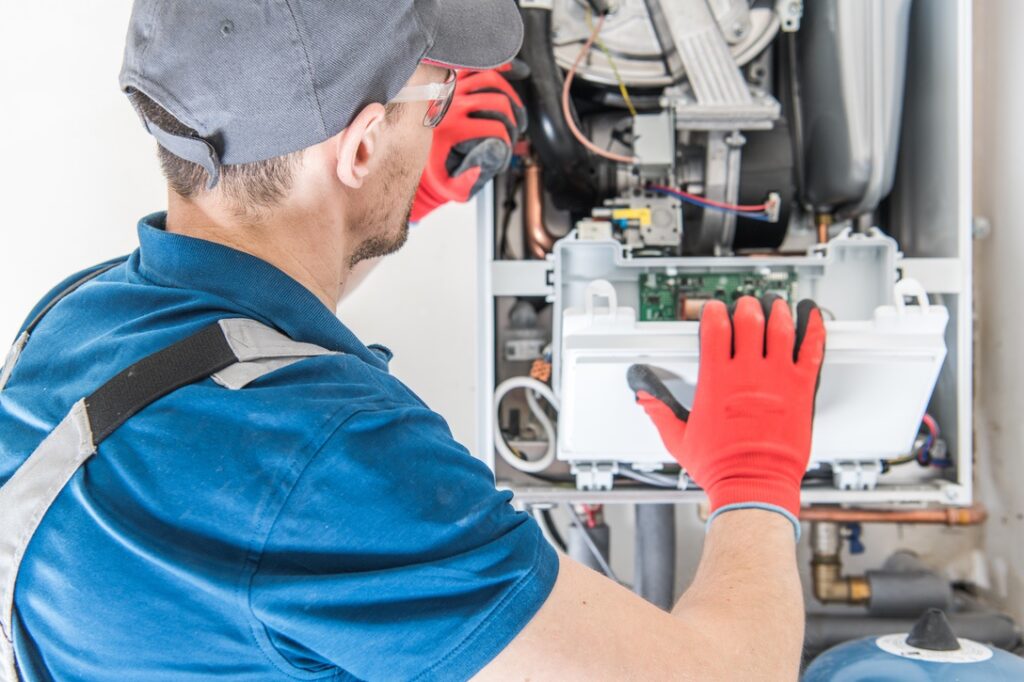
Some components of your furnace experience wear and tear faster than others. Typical mistakes that lead to leaking water include:
- Failed gaskets or seals
- A cracked heat exchanger
- A loose or damaged flue pipe
How to Fix it?
Preventative maintenance is usually better than waiting until one of the above problems occurs and then having to replace the defective part. If you’re diligent about scheduling service calls for us to inspect and tune up your furnace, we can nip these problems in the bud and help you avoid water leaking from the unit.
Improper Installation
Your furnace may have been installed by someone other than our professionals—and if they made an error, there might be missing or improperly sized components creating the leak. Common examples we’ve found include missing seals, poorly secured drain lines, and exhaust pipes that aren’t the right size for the furnace they’re in.
How to Fix it?
You should only ever allow licensed and insured contractors with good reviews and plenty of experience to work on your furnace—whether you’re having a new furnace installed or simply arranging for routine maintenance.
What Happens if You Don’t Fix the Leak?
Leaks are a serious problem. If left unnoticed and unsolved for long enough, leaks from your furnace can result in:
- Water damage to your home
- Slipping and falling hazards
- Electrical fires (resulting from water damage to wiring)
- Health problems (resulting from bacteria and mold growth)
- HVAC efficiency problems
- Furnace failure and costly emergency repairs
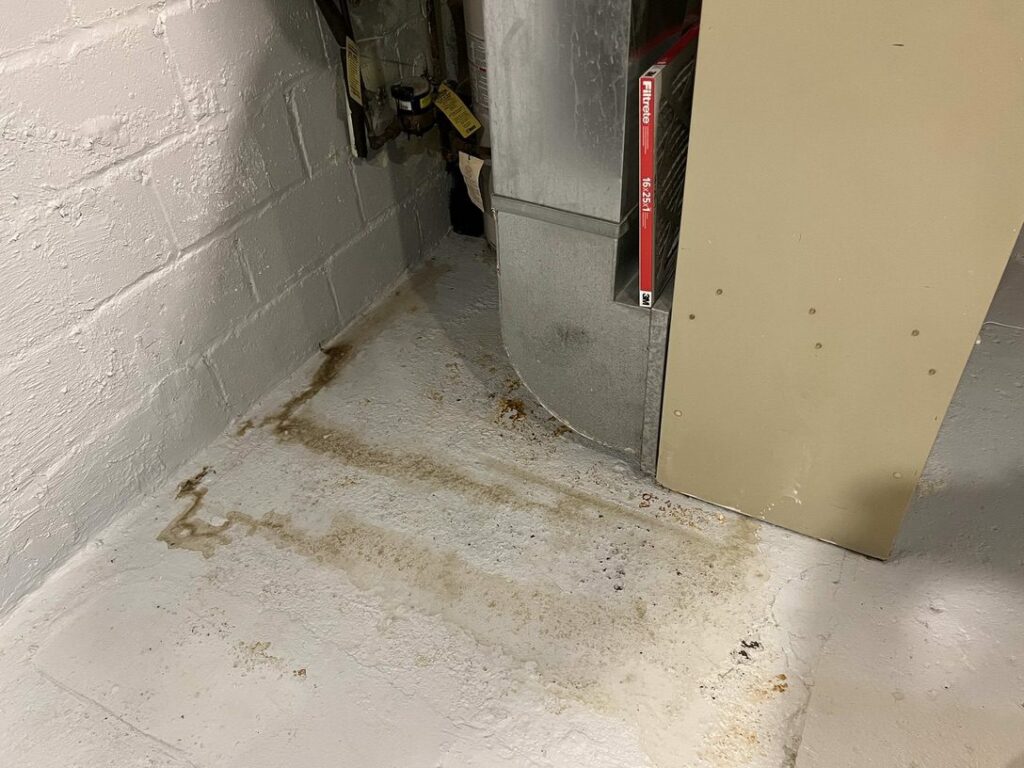
Other Signs Your Furnace May Need Professional Service
Leaking water isn’t the only sign your furnace needs professional attention. You should also keep an eye out for the following indicators that it’s time to give us a call:
- Your furnace doesn’t produce heat or doesn’t produce enough heat
- The furnace is making strange noises (such as banging, clanking, or squealing)
- Your energy bills are steadily increasing (this can be a sign that your furnace is becoming less efficient)
- The furnace is short cycling (turning on and off frequently within short time periods)
- The furnace is producing odd or unpleasant smells
More Improved Indoor Air Quality with Help from Action Furnace
Remember, regular furnace maintenance is important. Call us for a furnace tune-up at least once each year to avoid these issues and lower the chances of a water leak.
Leaking water is no joke, but preventing and dealing with this issue is easy when you have help from experienced HVAC professionals. To learn more about your furnace’s needs or to schedule a visit from our service technicians, contact Action Furnace and let one of our team members help you.
Frequently Asked Questions About Leaking Furnaces
What should I do if I notice water around my furnace?
First, identify the source of the leak. If it's a minor condensation issue, wiping away the water may be sufficient. If the leak persists or is significant, it's advisable to contact us for an inspection or repair.
How can I prevent condensation-related leaks in my furnace?
Regular maintenance, including checking and cleaning the condensate drain, can help prevent condensation-related leaks. Ensuring proper ventilation and airflow around the furnace is also important.
Are there risks to ignoring furnace leaks?
Yes, ignoring furnace leaks can lead to various problems, including water damage, mold growth, and potential safety hazards. Addressing leaks promptly is essential to prevent further damage and ensure the efficient operation of your furnace.

